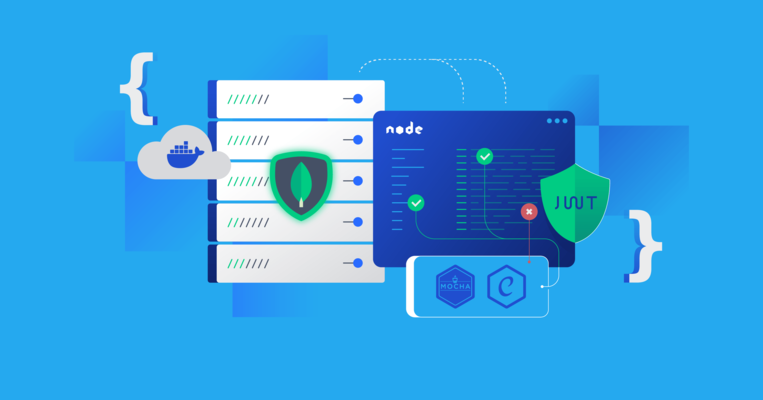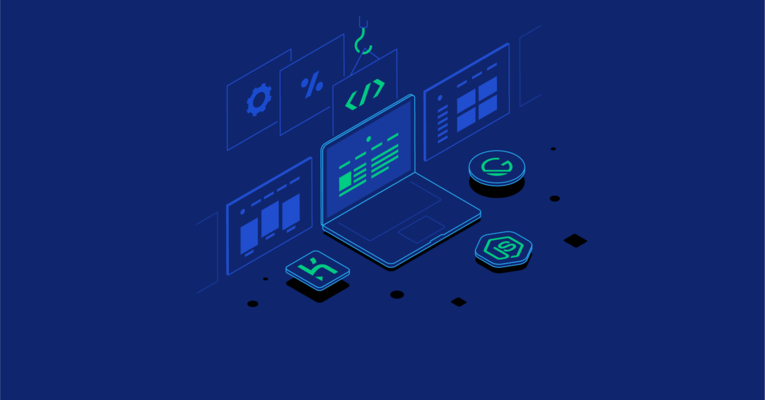MongoDB Developer Job Description Template
MongoDB is a document-based NoSQL database. It’s known for its support for scalability, flexibility, and sophisticated queries. It also features high availability, document validation, and tools for automation, backup, and monitoring.
Trusted by leading brands and startups
MongoDB is a document-based NoSQL database. It’s known for its support for scalability, flexibility, and sophisticated queries. It also features high availability, document validation, and tools for automation, backup, and monitoring.
Having a sole MongoDB developer is not a common thing in the workplace. Usually, MongoDB experience is an addition to whatever back-end skills are required. Job ads usually require a back-end developer (specialized in Node.js and C#, etc.) who has experience working with MongoDB.
However, for large enterprises with many MongoDB instances, a dedicated MongoDB developer makes sense. This template can help you in this case.
It can also offer help for jobs where specialization in MongoDB is a bit more important than usual: You can couple it with other templates that involve your tech stack.
A great MongoDB developer should understand the key differences between SQL and NoSQL databases on the conceptual level. They should also be comfortable with the specific syntax of MongoDB. They can be a developer with considerable hands-on experience with MongoDB, or they can be a DBA with development experience.
MongoDB Developer - Job Description and Ad Template
Copy this template, and modify it as your own:
Company Introduction
{{ Write a short and catchy paragraph about your company. Make sure to provide information about the company’s culture, perks, and benefits. Mention office hours, remote working possibilities, and everything else that you think makes your company interesting. }}
Job Description
We are looking for an experienced MongoDB developer/DBA who will maintain MongoDB databases while optimizing the performance, security, the availability of MongoDB clusters.
Responsibilities
- Maintain and configure MongoDB instances
- Keep clear documentation of the database setup and architecture
- Write procedures for backup and disaster recovery
- Ensure that the databases achieve maximum performance and availability
- Design indexing strategies
- Configure, monitor, and deploy replica sets
- Upgrade databases through patches
- Create roles and users and set their permissions
- {{ Add any other relevant responsibilities here. }}
Skills and Qualifications
- {{ If huge volumes of data are involved: }} Experience in optimizing insertions of large amounts of data
- {{ For Big Data: }} Experience with Big Data solutions like Hadoop
- {{ For Big Data: }} Experience designing systems that deal with large data sets and a huge volume of transactions
- {{ Part of a DevOps team? }} Experience with DevOps automation tools such as {{ Puppet | Ansible | other }}
- {{ If the developer will be involved with instances on the cloud: }} Experience with {{ Microsoft Azure | AWS | Google Cloud Platform }} desirable
- {{ If you will use other NoSQL databases to complement MongoDB: }} Experience with other NoSQL Databases like {{ Cassandra | Amazon DynamoDB | CouchDB }}
- {{ If you will use other databases to complement MongoDB: }} Passionate about embracing new database technologies
- {{ Especially important if hiring for a senior role: }} Demonstrate analytical, problem-solving, presentation, and interpersonal skills to handle various critical situations
- {{ Especially important if hiring for a senior role: }} Exhibit strong problem-solving skills and communications skills to handle critical circumstances well
- {{ If for web portals: }} Considerable hands-on experience in architecting web portals
- {{ If for senior and lead positions: }} Determine tools to be used for the projects and set coding standards
- Experience in ORMs like {{ Add the ORM/s you use here }}
- {{ If the developer/administrator will get involved in deployment, etc.: }} Experience in working with a {{ Linux/UNIX or Windows }} environment
- Experience in developing scripts to automate frequent tasks
- {{ If needed: }} {{ Familiarity | Experience }} with sharded clusters
- Knowledge of best patterns and practices for designing document schemas
- Good grasp of MongoDB’s aggregation framework
- Experience with {{ put your back-end runtime language or framework here, like Node.js or .NET Core }} MongoDB driver
- DevOps experience to support our database {{ If needed }}
- {{ Make sure to mention any other frameworks, libraries, or other technologies relevant to your development stack. }}
- {{ List any education level or certification you may require. }}
Recent MongoDB Articles by Toptal Engineers

Building a Node.js/TypeScript REST API, Part 3: MongoDB, Authentication, and Automated Tests
How to Hire MongoDB Developers
MongoDB developers build scalable, performant, and secure solutions with their knowledge of effective NoSQL database design and modeling. This hiring guide will help you identify the ideal expert, whether you need support for a basic web application or a large-scale, data-intensive project.
Read Hiring GuideFind the right MongoDB interview questions
Read a list of great community-driven MongoDB interview questions.
Read them, comment on them, or even contribute your own.
Hire a Top MongoDB Developer Now
Toptal is a marketplace for top MongoDB developers, engineers, programmers, coders, architects, and consultants. Top companies and startups choose Toptal MongoDB freelancers for their mission-critical software projects.
See Their ProfilesMarcin Bodnar
Marcin is a senior software engineer focused on web development with over 15 years of proven professional experience (in both startups and enterprise environments) and more than 300 successful web projects. When it comes to development, he believes that motivation, communication, high resistance to stress, and team culture are crucial when bringing the clients' expectations to life. Marcin equally enjoys working in a team or independently.
Show MorePetr Rusanov
Petr is a full-stack engineer with a 17-year record of optimizing code, costs, and user experiences. He excels in crafting secure, readable, and reliable code for cloud-native services. He is proficient in Go, Node.js, PostgreSQL, MongoDB, Bigtable, GCP/AWS/Azure, React/Vue, Kubernetes, ArgoCD, Docker, and Terraform. Petr focuses on delivering exceptional user experiences and optimizing large-scale applications for peak performance and cost efficiency.
Show MoreSilvio Di Stefano
Silvio is a software engineer specializing in the development, hosting, and maintenance of top-quality websites. He has collaborated with numerous teams around the world, striving to provide high-end service and support. He released his first website in PHP at age 14 and is an advocate for TDD.
Show MoreKsenia Kanishcheva
Ksenia is a full-stack web developer who's particularly interested in creating data-driven web applications, data representation with relational and non-relational databases, data mining to find patterns and make predictions, and the graphical presentation for visualization.
Show MoreMichal Mikolajczyk
Michal is a senior software engineer and community leader for Toptal Warsaw. He communicates well and takes the initiative needed to help startups scale. Michal writes clean, functional code, automates infrastructure, and enjoys coordinating and scoping tasks. A former digital nomad, Michal speaks at conferences, and writes articles for the Toptal Blog. His professional interests include blockchains and artificial intelligence.
Show MoreChris Yuen
Chris is an experienced full-stack entrepreneur who has built a variety of applications over the years: from the back-end to front-end, from disassembly to machine learning. He is passionate about staying on the forefront of technology and leveraging his experience to bring projects to a great level of success.
Show MoreIgnacio Freiberg
Ignacio is a software and web developer with more than twelve years of experience in many programming languages, libraries, and frameworks (both frontend and backend). He enjoys constantly learning and developing new skills, and he is familiar with many different paradigms and technologies.
Show MorePierre Ortega
Pierre is a full-stack developer who's worked in a range of roles, including front-end developer building scalable web platforms, tools engineer designing and building new tools that simplify the developer experience, and back-end engineer implementing and optimizing core systems. Pierre can hit the ground running on many different project types, but he joined Toptal to join projects where he can contribute to building full-stack web platforms.
Show MoreGuilherme Stiebler
Guilherme is an experienced software engineer from AWS specializing in scalable technical solutions and back-end development. He has a proven track record in optimizing complex systems and is an expert in AI, Java, TypeScript, and Python. Guilherme is passionate about driving project success with innovative, efficient tech solutions.
Show MoreJulius Arden
Julius is a front-end-biased software engineer and engineering manager with 5+ years of professional experience. He has worked in multiple sectors, including marketplace, edtech, and fintech, and in companies ranging from startups to multinationals. Julius leverages his varied experience to remain flexible and pragmatic while delivering and maintaining clean code.
Show MoreMichael Perju
Michael has a degree in AI with a strong background in algorithms and data structures. He was a researcher at the Royal Holloway University of London, delivered a paper titled "Disentangled Representation Learning," and led projects for clients such as Bosch, the Mayor of London, and GLAs Greater London Authorities. He has worked with professors from universities such as UCL and Pittsburgh for UK, EU, US, and African cities on projects from data science, to government, Healthtech, and IoT.
Show MoreDiscover More MongoDB Developers in the Toptal Network
Start HiringToptal Connects the Top 3% of Freelance Talent All Over The World.
Join the Toptal community.


















